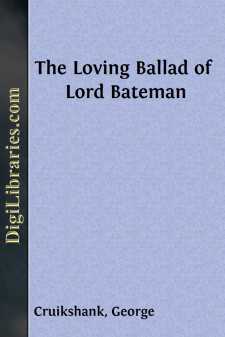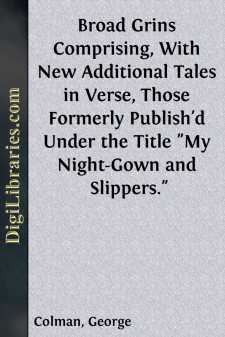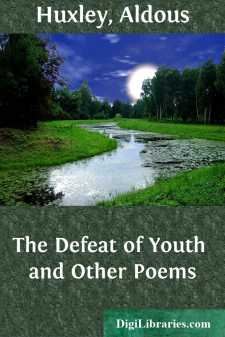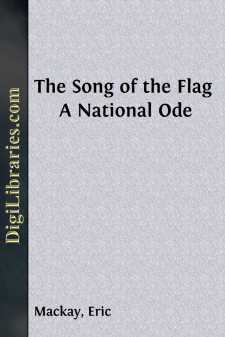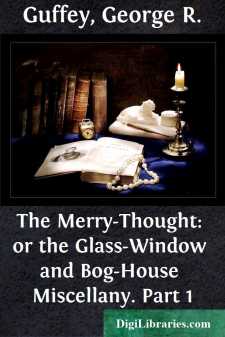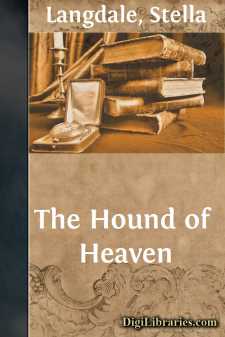Poetry
- American 96
- Ancient, Classical & Medieval 42
- Asian 15
- Australian & Oceanian 11
- Canadian 11
- Caribbean & Latin American 5
- Children's Poetry & Nursery rhymes 51
- Continental European 11
- English, Irish, Scottish, Welsh
- General 483
- Inspirational & Religious 7
- Middle Eastern 3
English, Irish, Scottish, Welsh Books
Sort by:
PART I. The Arrow and the Song. "The Arrow and the Song," by Longfellow (1807-82), is placed first in this volume out of respect to a little girl of six years who used to love to recite it to me. She knew many poems, but this was her favourite.I shot an arrow into the air,It fell to earth, I knew not where;For, so swiftly it flew, the sightCould not follow it in its flight.I breathed a song...
more...
INTRODUCTION In an address to the American Society for Eighteenth Century Studies at the 1983 annual meeting, Roger Lonsdale suggested that our knowledge of eighteenth-century poetry has depended heavily on what our anthologies have decided to print. For the most part modern anthologies have, in turn, drawn on collections put together at the end of the eighteenth century and the beginning of the next,...
more...
Warning to the Public THE LOVING BALLAD OF LORD BATEMAN. In some collection of old English Ballads there is an ancient ditty which I am told bears some remote and distant resemblance to the following Epic Poem. I beg to quote the emphatic language of my estimable friend (if he will allow me to call him so), the Black Bear in Piccadilly, and to assure all to whom these presents may come, that "I am...
more...
by:
George Colman
ADVERTISEMENT. My Booksellers inform’d me, lately, that several inquiries had been made for ,—but that every copy had been sold;—they had been out of print these two years.—“Then publish them again,” said I, boldly,—(I print at my own risk)—and with an air of triumph. Messrs. Cadell and Davies advise’d me to make additions.—“The is, really, too short,” said Messrs. Cadell and...
more...
by:
Aldous Huxley
THE DEFEAT OF YOUTH I. UNDER THE TREES. here had been phantoms, pale-remembered shapesOf this and this occasion, sisterlyIn their resemblances, each effigyCrowned with the same bright hair above the nape'sWhite rounded firmness, and each body alertWith such swift loveliness, that very restSeemed a poised movement: ... phantoms that impressedBut a faint influence and could bless or hurtNo more than...
more...
ATHENS AN ODEEre from under earth again like fire the violet kindle,[Str. 1. Ere the holy buds and hoar on olive-branches bloom,Ere the crescent of the last pale month of winter dwindle,Shrink, and fall as falls a dead leaf on the dead month's tomb,Round the hills whose heights the first-born olive-blossom brightened,Round the city brow-bound once with violets like a bride,Up from under earth...
more...
by:
Eric Mackay
THE SONG OF THE FLAG. I.Up with the country's flag!And let the winds caress it, fold on fold,—A stainless flag, and glorious to behold!It is our honour's pledge;It is the token of a truth sublime,A thing to die for, and to wonder at,When, on the shuddering edgeOf some great storm, it waves its woven joy,Which no man shall destroy,In shine or shower, in peace or battle-time.Up with the...
more...
by:
George R. Guffey
INTRODUCTION For modern readers, one of the most intriguing scenes in Daniel Defoe's Moll Flanders (1722) occurs during the courtship of Moll by the man who is to become her third husband. Aware that the eligible men of her day have little interest in prospective wives with small or nonexistent fortunes, Moll slyly devises a plan to keep her relative poverty a secret from the charming and (as she...
more...
by:
Stella Langdale
The Rev. Mark J. McNeal, S. J., who was one of the successors of Lafcadio Hearn in the chair of English Literature at the Tokyo Imperial University, in an interesting article recounts the following incident of his experience in that institution. "I was seated on the examining board with Professor Ichikawa, the dean of the English department... There entered the room a student whom I recognized as...
more...
by:
Fay Inchfawn
The Long View Some day of days! Some dawningyet to beI shall be clothed with immortality! And, in that day, I shall not greatly careThat Jane spilt candle grease upon thestair. It will not grieve me then, as once it did,That careless hands have chipped myteapot lid. I groan, being burdened. But, in thatglad day,I shall forget vexations of the way. That needs were often great, when meanswere small,Will...
more...




